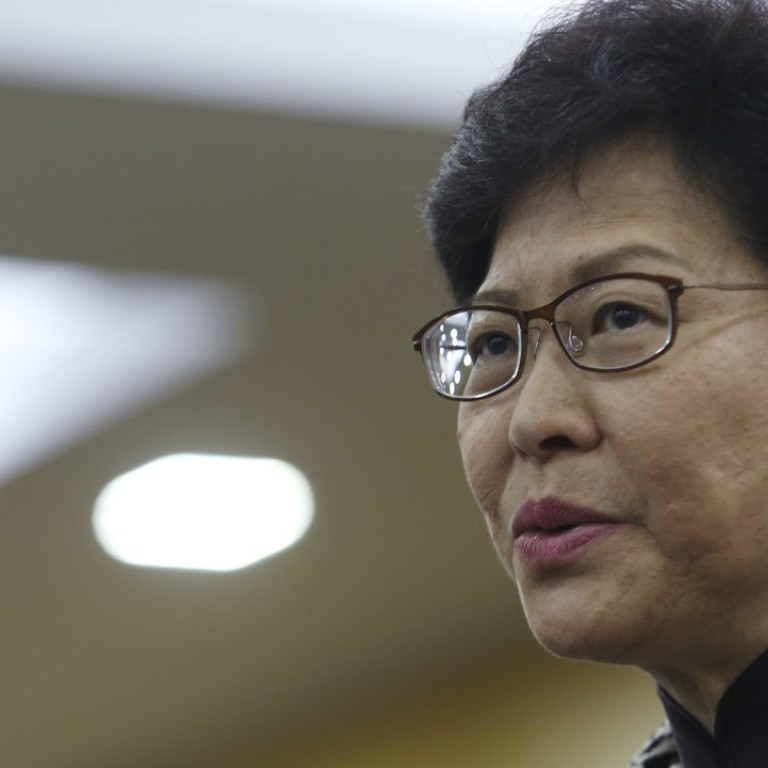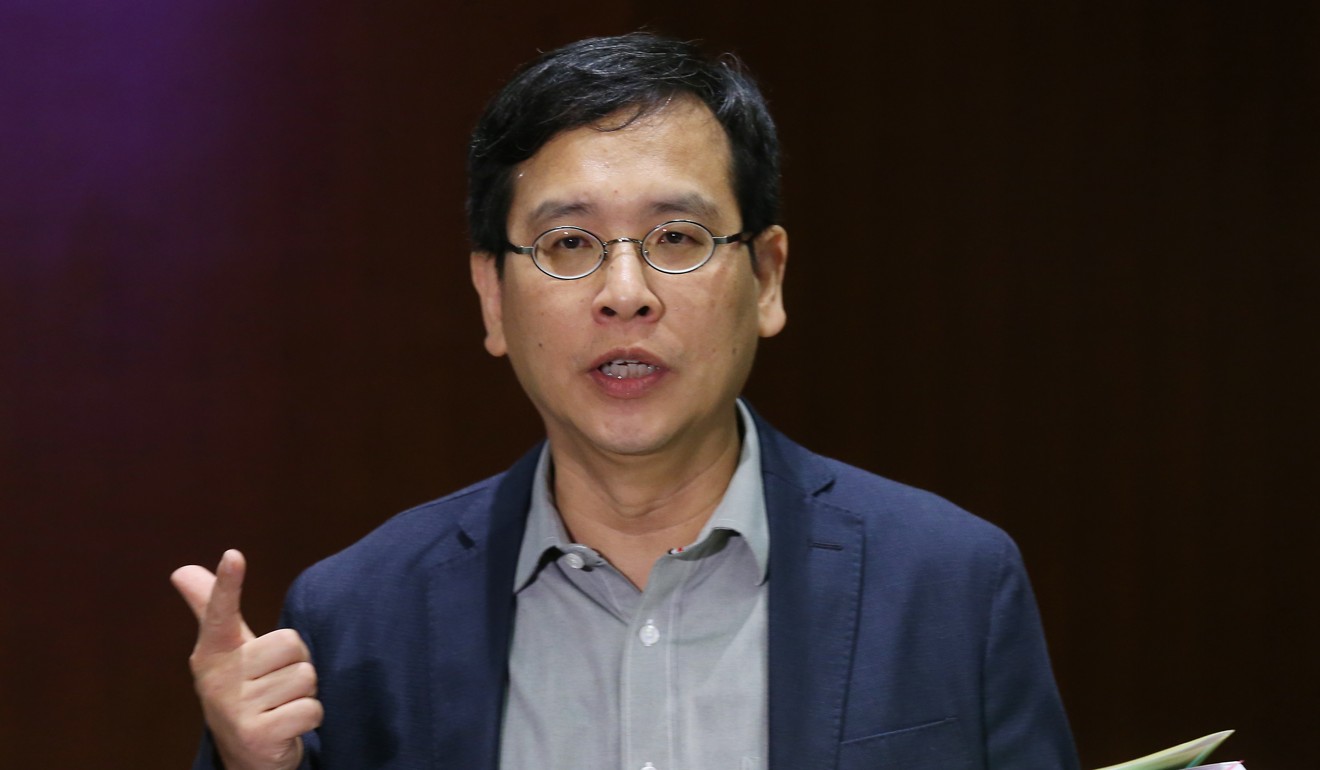
Chief Executive-elect Carrie Lam plans HK$30,000 subsidy for eligible secondary school graduates
Suggestion part of HK$5 billion proposal aimed at city’s education sector
Secondary school graduates facing costly fees for a self-financing degree programme due to limited places at publicly funded universities have been given some good news with the incoming government revealing plans to provide a HK$30,000 subsidy to eligible students.
This was one of the measures floated by Chief Executive-elect Carrie Lam Cheng Yuet-ngor at her meeting with education representatives on Monday to discuss how to use the HK$5 billion boost to the sector she had pledged during her campaign.
Another measure brought up at the meeting was increasing the number of teachers per class in primary and secondary schools.
These plans were confirmed during a radio programme on Tuesday morning by education lawmaker Ip Kin-yuen, who was among the 30-plus education representatives who met Lam.
The minimum requirement for admission to a local university is getting a level three for Chinese language and English language and a level two for mathematics and liberal studies in the Diploma of Secondary Education (DSE) examination.
There are 15,000 government-subsidised first-year university degree places, which generally cost about HK$40,000 a year, but many more students have been meeting the basic requirements since the implementation of the DSE.
For example, 24,611 DSE takers met the minimum requirements for admission to a subsidised public university degree course last year.
The discrepancy means many students end up taking self-financing degree programmes.
Ip, who is also the vice-president of the Professional Teachers’ Union, said Lam proposed at the meeting to provide subsidies of HK$30,000 a year for these students, as well as to those pursuing a degree after getting an associate degree.
“The students taking self-financing degree programmes generally have to pay HK$70,000 to HK$80,000 a year, with the amount going up to HK$100,000 for some courses,” he noted.
“Currently, there is not much help from the government besides student loans, so I believe this plan will help these young people in reducing their debts.”

Ip said another idea floated by Lam at the meeting was to increase the number of teachers in primary and secondary schools by 0.1 per class.
This would mean that if a school had 24 classes, it would have 2.4 additional teachers, he explained.
The current class-to-teacher ratio at primary levels at public schools is 1:1.5, while that for junior secondary levels is 1:1.7. At senior secondary levels, the class-to-teacher ratio is 1:2.0.
But Ip said his union hoped for the increase to be 0.2 teachers per class for the coming school year and 0.3 in the future.
He also confirmed that these initial proposals by Lam would cost about HK$3.6 billion and are for urgent matters to be implemented by September, the beginning of the new school year. He was also hopeful that the funding would be passed by the Legislative Council before its break in July.
During her campaign, Lam described the government’s education expenditure as “a new low” and pledged to immediately add HK$5 billion to the key portfolio.
Among the issues to be tackled were establishing a pay scale for kindergarten teachers; improving staffing of primary and secondary school teachers; and converting short-term contract teaching posts to permanent ones.
Lam added she would prioritise enhancing support for integrated education and special education; upgrading the hardware and software provided for schools; granting financial aid to secondary school graduates to help them pursue degree courses in self-financing tertiary institutions; and exploring the feasibility of flexible repayment arrangements for newly graduated students of tertiary institutions to reduce their burden in paying back tuition loans.
Professional Teachers’ Union president Fung Wai-wah said his union and other groups would gather opinions from stakeholders in the next week or two before passing them to Lam for her reference.
In the last budget year, the government’s recurrent spending on education totalled about HK$74.7 billion.

